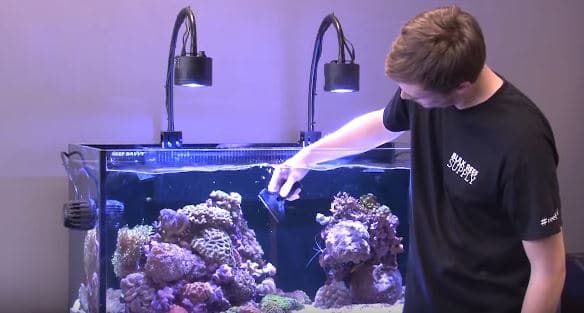It is disheartening to see that marine life is in danger because of human innovations and extravagance. We should understand that unbelievable trash is compiled on the local waterways with the impact of these several seawater animals lost their life.
Many communities come together to clean the local wildlife home they share together, which is quite rewarding, but it doesn’t take a significant event to make a difference. So many ways are there to protect the sea world. Below discussed some friendly cleaning habits:
1. Collect The Trash and Recycle, Reduce Plastic.
The primary reason sea animal lost their life is pollution and plastic. For example, turtles eat plastic bags for jellyfish, animals get stuck in plastic wrapping, birds muddle in the fishing line, and this all happens because of our human carelessness. These are the things that can easily be avoided by disposing of the trash correctly, reducing and reusing the plastic. Visiting the beach and picking up dumpsters or disposing of at the same moment is perfect. It’s the ideal feeling working with your relatives, friends while visiting the beach by organizing their own clean-up crew.
2. Save Water
Saving the environment will extend the health and money. By following the simple steps; don’t run the water while completing tasks like changing the showerhead, brushing teeth, and watering the plant. This will not only save the water but your money as well.
3. Use The Eco-Friendly Products
Whenever you visit the beach for the cleaning purpose, use environment-friendly products like UVC solutions or UVC light sanitizer. This will help to recover marine life.
4. Reduce Energy Consumption
If you want to protect marine life, it’s always useful to leave the car at home. The few things you can do is switch to fluorescent light bulbs, avoid lift and take stairs.
5. Avoid Using The Plastic
Plastic is so dangerous, and it’s killing the sea animals, destroying habitat, and kill near about ten thousands of marine animals in a year. Make sure you carry a reusable water bottle, nondisposable food containers, buy a reusable bag or cloth tote because they recycle and have UVC sanitizer in your bag.
6. Be Alert On Beach
Always clean-up yourself, when you are relaxing, diving, or surfing to the beach. Enjoy in the sea and beach without obstructing with wildlife or replacing the coral or rocks. Encourage others also to respect the sea wildlife environment or enrolling yourself in local beach clean-ups.
7. Avoid Buying Items That Destroy The Marine Life
There are several products in the market which harm the wildlife and fragile coral reefs. Do not purchase items like; tortoiseshell hair accessories, shark protect, and coral jewelry.
8. Choose Viable Seafood.
The population of fish is declined due to excessive demand, unsustainable fishing practices, and habitat whenever you are dining or shopping out, reduce your order for overused genus by selecting seafood that is healthful and imperishable.
What Are The Suitable Ways To Clean The Aquarium?
It’s imperative to clean the fish tank to ensure your fish stay healthy. Cleaning of an aquarium requires regular preservation because the aquarium water becomes harmful to your wish if not cleaned properly. Don’t empty the tank at ones, because it will kill the beneficial bacteria. If you are new to this process and assume that cleaning a small bowl or tank was easy, this is an incorrect assumption because the larger the aquarium is, the easier it would be to stabilize the water.
Use environmentally friendly products while cleaning for example; UVC solutions are absolutely perfect for regular cleaning or the standard cleaning; you can use the UVC sanitizer. Always keep the following thing in mind before cleaning the aquarium.
Why is the cleaning of the aquarium required?
Why is regular cleaning necessary?
How many time tank need cleaning?
Fish tank parameters
How to clean the fish tank?
Visit here for more detail about How to Disinfect Aquariums To Protect Animals?

No comments:
Post a Comment